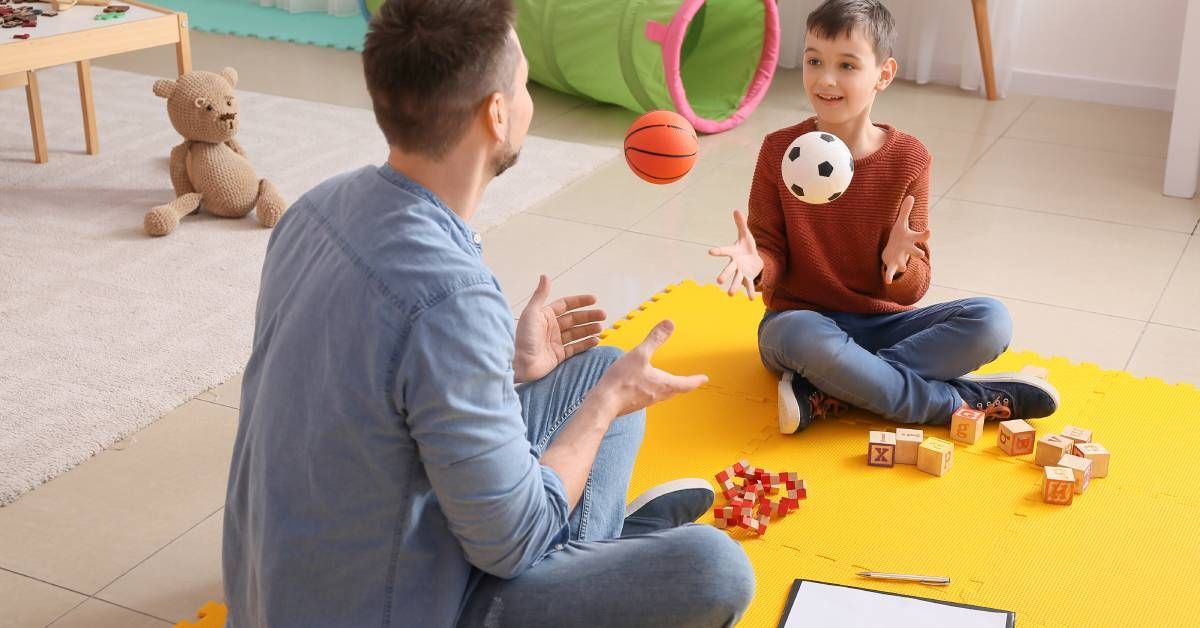Understanding the Unique Strengths in Children With Autism
When talking about children with autism, many people focus on the challenges they face. However, many children on the spectrum often possess unique strengths that deserve recognition. Recognizing and nurturing these strengths can lead to incredible growth and a deeper understanding between parents and their children.
Understanding the unique strengths of children with autism can help families appreciate their child’s abilities. Continue exploring these strengths and provide insights on how parents can support and nurture them effectively.
Uncovering Unique Abilities
Children with autism often have remarkable abilities that might not be immediately obvious. These abilities range from exceptional memory skills to unique ways of perceiving the world. Families can establish a positive environment that encourages development and self-expression by focusing on these strengths.
Helping Your Child Find Their Strengths
Identifying and nurturing the strengths of children with autism requires patience, observation, and encouragement. Parents can provide their children opportunities to thrive by engaging in activities highlighting their natural talents. Observing how children interact with their surroundings can reveal their interests and passions.
Collaborate with your child's therapist and education team to develop tailored strategies to support these talents, build confidence, and promote a sense of achievement. This approach benefits the child and strengthens family bonds through shared experiences and mutual understanding.
The Power of Focus
Some children with autism can often concentrate intensely on specific tasks or interests. This intense focus can lead to mastery in their chosen area, allowing them to develop skills that might be beyond the reach of their peers. Providing opportunities for them to explore their interests and talents can lead to a greater sense of accomplishment and fulfillment.
For example, if a child is passionate about music, providing access to instruments or music lessons can foster their growth and enjoyment. Similarly, if a child loves building Legos or puzzles, offering them challenging builds or puzzles can help develop their problem-solving skills.

Creativity and Innovation
Many children with autism demonstrate exceptional creativity in their thinking and problem-solving. This creativity can manifest in various forms, from artistic expression to innovative solutions to everyday challenges.
Encouraging creative exploration can help children develop their unique talents and find joy in self-expression. Providing opportunities for artistic exploration, such as painting or drawing, can allow them to express themselves without the constraints of verbal communication.
Building Resilience
Despite the challenges they face, many children with autism demonstrate remarkable resilience. This resilience can be a powerful tool in overcoming obstacles and adapting to new situations.
Families can support their child’s resilience by providing a solid foundation of love and understanding. By fostering an environment where children feel safe and valued, parents can help their children build the strength they need to face challenges confidently.
In addition, parents can encourage resilience by modeling positive coping strategies and providing opportunities for their children to practice these skills. Teaching children how to manage stress, adapt to change, and find solutions can help them become more resilient and adaptable.
The Importance of Communication
Effective communication is essential in understanding and nurturing the unique strengths of children with autism. Families can build stronger connections and foster a supportive environment by learning how to communicate effectively with their children.
One approach to improving communication involves learning to recognize and interpret nonverbal cues, such as body language and facial expressions. By paying attention to these cues, families can better understand their child’s needs and emotions.
Parents can also use visual aids and tools such as picture schedules or communication boards to help children express themselves and understand expectations. This can reduce frustration and increase understanding between parents and children.

Encouraging Social Connections
Fostering social connections can help children with autism develop important interpersonal skills and build friendships. By providing opportunities for social interaction, families can support their children’s growth and help them develop a sense of belonging.
Encouraging playdates, participating in group activities, and enrolling in social skills programs can help children with autism develop social skills and build connections with their peers. Engaging in activities they enjoy can make social interactions more enjoyable and accessible.
Honesty and Sense of Fairness
Children with autism often display a strong sense of honesty and fairness. Most children communicate without the usual social filters, and their fairness drives them to seek justice and equality in various situations.
Families can nurture these traits by encouraging honesty, teaching social norms, and providing opportunities for their sense of justice to shine. Valuing these qualities helps improve understanding and appreciation in family, school, and community settings.
Fostering Independence
Most people believe that children with autism can’t grow into independent adults. However, that’s far from the truth. By empowering them to make choices and take responsibility for their actions, families can help their children develop a sense of autonomy and self-confidence.
Encouraging decision-making, providing opportunities for self-care, and teaching life skills can help children with autism develop independence. By gradually increasing responsibilities, families can help their children build the skills they need to thrive in various situations.
Leveraging Technology
Technology can be a powerful tool in supporting the strengths of children with autism. Providing access to devices and applications designed to enhance learning and communication allows families to help their children develop skills and explore interests.
Educational apps, communication tools, and interactive games can provide engaging and accessible ways for children with autism to learn and express themselves. Families can support their child’s development and growth by exploring these resources.
Cultivating a Supportive Environment
Creating a supportive environment is essential for nurturing the unique strengths of children with autism. By fostering a positive atmosphere that encourages growth and self-expression, families can help their children thrive.
Families can create a supportive environment by encouraging open communication, celebrating accomplishments, and providing opportunities for exploration and growth.
Your Next Steps
Understanding the unique strengths of children with autism can provide valuable insights for families. Parent education for autism is essential in supporting children’s unique strengths and challenges. Families can gain valuable insights and strategies for nurturing their child’s growth by seeking resources and support.
Explore further resources and support from our team at HANDS Center for Autism to learn more about how to support your child’s development.







